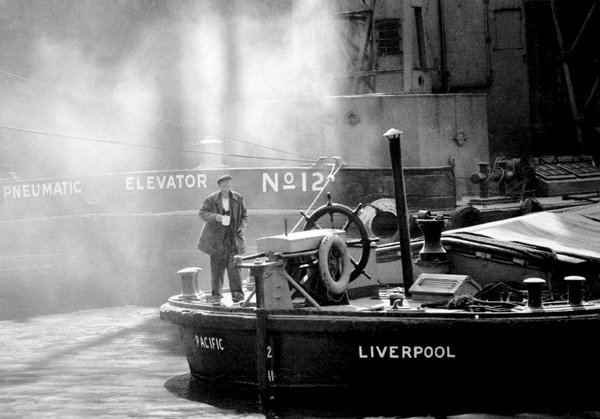|
Reviews of Recent Independent, Foreign, & Documentary Films in Theaters and DVD/Home Video

OF TIME AND THE CITY
In his prior work, nostalgia’s formative effect on the human experience is essential. In the acid sarcasm that makes Of Time so memorable, however, nostalgia is more like a punch line. Mr. Davies does make every attempt to blame his characteristic (but ultimately harmless and, dare I say, appealing) contemptuousness on his life’s trials, but a complaining voice persists throughout this autobiographical saga, subtly exposing him as the canny snob he loves to be. Not to deny that throughout this unique documentary he is at times hilarious, or at others extremely perceptive. For so long, though, with such profound films as Distant Voices, Still Lives and The Long Day Closes, he has taught us that specific experiences in specific places make up our defining elements. This time around, he seems to delight in his assumed snobbish persona, contradicting his own claims to impoverished roots and social persecution. Financial struggle and closet homosexuality don’t produce the kind of elitist that Davies personifies. This craftsman is playing a part, and his witticisms are applied addenda to his history, rather than an organic product of it. Of Time’s historical commentary is composed in part by an impressive collection of Bernard Fallon’s black-and-white expressionist photography from the 1960s and ’70s, as well as beautifully restored newsreel and home movie footage. The powerful images could probably stand as a piece on their own. But there is something more important that comes from the combination/juxtaposition of narration and the host of brilliant musical selections (everything from Mahler to Peggy Lee to The Spinners’ Dirty Old Town) set to footage of demolished tenements, the British royal family in all its tacky splendor, and the city today. Though Davies’ narration is insightful, it somehow doesn’t match the material. The
man who has been called “England’s greatest living director” (The
Guardian) admittedly has hardly seen a new film in the last 10
years. (For those of us who have, Guy Maddin’s My
Winnipeg, a similar, yet superior film to this one, may be a point
of reference). But Of Time is a great film, remarkable in how the
director openly shares his identity crisis. Though the Beatles come
from similar working-class roots, Davies despises the band, preferring
classic music. Likewise, he unabashedly hates Elvis, the
bourgeoisie, the British royalty, and the Catholic Church. I suppose
when one diversifies one’s scorn, then poor people are the only ones
left to champion. Michael Lee
|

